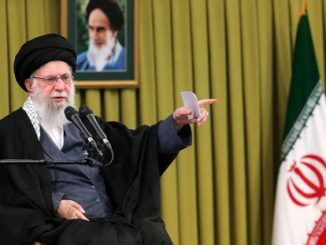
| Published June 22, 2025
The Obama-Biden administration is facing renewed scrutiny over its controversial financial dealings with Iran, the world’s leading state sponsor of terrorism. Recent whistleblower revelations, paired with revived Congressional interest, have reignited calls for a formal investigation into billions of dollars sent to Tehran—money critics say helped fuel extremist operations across the Middle East. As political tensions flare and public trust erodes, lawmakers and watchdogs are now demanding accountability for what many view as a dangerous blend of diplomacy and negligence.
🧾 What actually happened
💵 $1.7 billion “cash” payment
-
Settlement of a decades-old dispute
In January–February 2016, the U.S. paid Iran $400 million in foreign-currency cash, followed by $1.3 billion in interest. This settled a legal claim dating to military purchases made before 1979. -
Cash used to bypass sanctions
These cash payouts were reportedly necessary due to Iran’s isolation from the financial system under U.S. and international sanctions -
Timing tied to hostage release
The $400 million drop coincided with the release of four American detainees. The Obama administration said it “leveraged” that timing, but insisted it did not pay ransom. -
Legal compliance confirmed
Congressional reviews and a Treasury Inspector General report concluded the payment complied with U.S. law—specifically the Victims of Terrorism and Terrorism Risk Insurance Act—and had the required authorizations.
🛡️ Allegations of investigation interference
Recent whistleblower claims allege the Obama administration, under Secretary of State John Kerry, suppressed FBI investigations and arrests related to Iran during the nuclear deal period. FBI agents reportedly were told to “stand down” in some terrorism-related cases. If verified, this could be a serious breach of enforcement protocols.
 Implications
Implications
-
National Security Risk
Funds allegedly sent to Iran may have indirectly supported terrorist groups, undermining U.S. and allied security interests in the Middle East. -
Breakdown of Legal Oversight
Accusations of blocked FBI investigations suggest possible interference with law enforcement and failure to uphold federal protocols. -
Erosion of Public Trust
Perceptions of secretive payments and possible cover-ups could deepen skepticism about government transparency and accountability. -
Congressional Fallout
Lawmakers may push for new hearings, subpoenas, and possibly criminal investigations into former officials involved in the settlement and nuclear deal. -
Foreign Policy Repercussions
Allegations may weaken U.S. credibility in future diplomatic negotiations, particularly with regimes considered hostile or untrustworthy. -
Partisan Polarization
This issue is likely to widen the political divide, with renewed debates over how far administrations can go in pursuit of diplomacy. -
Call for Policy Reform
These events may lead to proposals for stricter legal frameworks governing executive authority in foreign financial settlements and sanctions relief.
💬 Overall Takeaway:
The controversy over the Obama-Biden administration’s financial dealings with Iran raises profound questions about the balance between diplomacy and national security. While defenders argue the payments were part of a lawful settlement, critics warn they empowered a hostile regime and undermined American law enforcement efforts. As new whistleblower accounts surface and congressional leaders renew their calls for accountability, the issue is far from settled. What emerges from future investigations may not only reshape public perception but also redefine the limits of executive power in foreign policy.
SOURCES: THE GATEWAY PUNDIT – Iran Regime Says Nuclear Sites ‘Evacuated a While Ago’ — Claims They “Didn’t Suffer a Major Blow”
THE NEW YORK POST – Obama Justice Dept., John Kerry ‘systematically derailed’ FBI probe of Iranian terrorists while pursuing nuclear deal: whistleblowers
AP NEWS – US payment of $1.7 billion to Iran made entirely in cash





Be the first to comment